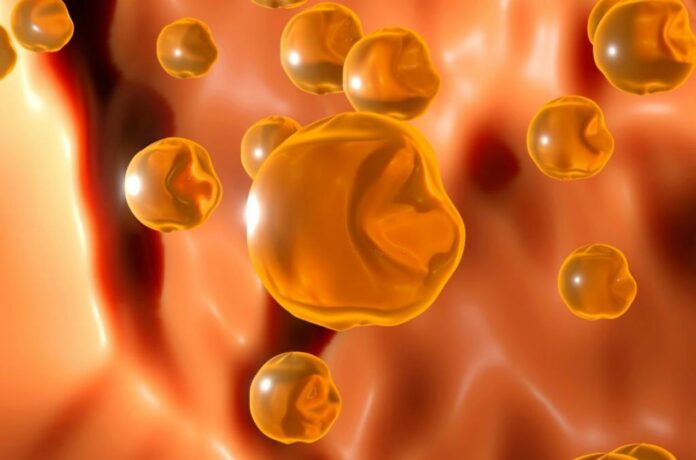A new NIH-supported study published today in the Journal of the American College of Cardiology challenges “good” cholesterol’s role in universally predicting heart disease risk
A study backed by the National Institutes of Health (NIH) discovered that high-density lipoprotein (HDL) cholesterol, commonly referred to as “good cholesterol,” may not be as helpful as previously assumed in predicting risk for cardiovascular disease among adults of diverse races and ethnicities.
The study, which was published in the Journal of the American College of Cardiology, found that while there is a long-established correlation between low levels of HDL cholesterol and an increased risk of heart attacks or deaths related to them in white adults, this correlation did not exist in black adults. Also, higher HDL cholesterol levels did not make either group less likely to get cardiovascular disease.
“The goal was to understand this long-established link that labels HDL as the beneficial cholesterol, and if that’s true for all ethnicities,” explains senior author Nathalie Pamir. “It’s been well accepted that low HDL cholesterol levels are detrimental, regardless of race. Our research tested those assumptions.”
To do this, Pamir and her colleagues looked at data from the Reasons for Geographic and Racial Differences in Stroke Study – in short REGARDS, which included 23,901 adults from the United States. In the 1970s, most of the adults who took part in studies about “good” cholesterol levels and heart health were white. These studies changed the way people thought about these things. For this study, researchers were able to look at how the cholesterol levels of middle-aged adults of both races who did not have heart disease and who lived in different parts of the country were linked to future heart events.
Participants in the study signed up for REGARDS between 2003 and 2007, and researchers examined data gathered over a ten- to eleven-year period. Participants in the study, both black and white, had similar age ranges, cholesterol levels, and underlying heart disease risk factors such diabetes, high blood pressure, and smoking. Six hundred sixty-four Black adults and nine hundred fifty-one White adults died of heart attacks or had heart attacks during this time period. Adults with high levels of LDL cholesterol and triglycerides were slightly more likely to get cardiovascular disease, which was in line with what other research had found.
But the study was the first to find that lower HDL cholesterol levels only made white adults more likely to get cardiovascular disease. Moreover, it adds to the previous research that found high HDL cholesterol levels are not necessarily related with a lower risk of cardiovascular events. The REGARDS analysis was the largest U.S. study to demonstrate that this was true for both Black and white adults, suggesting that higher than ideal levels of “good” cholesterol may not offer cardiovascular benefits for either group.
“What I hope this type of research establishes is the need to revisit the risk-predicting algorithm for cardiovascular disease,” Pamir adds. “It could mean that in the future we don’t get a pat on the back by our doctors for having higher HDL cholesterol levels.”
Pamir noted that researchers are examining several hypotheses as they investigate the impact of HDL cholesterol in promoting heart health. One is quality over quantity. That is, rather than having more HDL, the quality of HDL’s activity – in removing excess cholesterol from the body – may be more significant for sustaining cardiovascular health.
In addition, they are examining the properties of HDL cholesterol at a microscopic level, including the analysis of hundreds of proteins associated with transporting cholesterol and how varying associations based on a single protein or groups of proteins may improve cardiovascular health predictions.
“HDL cholesterol has long been an enigmatic risk factor for cardiovascular disease,” explains Sean Coady, a deputy branch chief of epidemiology within the National Heart, Lung, and Blood Institute (NHLBI)’s Division of Cardiovascular Sciences. “The findings suggest that a deeper dive into the epidemiology of lipid metabolism is warranted, especially in terms of how race may modify or mediate these relationships.”
The findings, the authors conclude, show that cardiovascular disease risk calculators employing HDL cholesterol could result in incorrect projections for Black adults, and they support continued and future study with varied groups to explore these links.
“When it comes to risk factors for heart disease, they cannot be limited to one race or ethnicity,” adds Pamir. “They need to apply to everyone.”
Image Credit: Getty images
